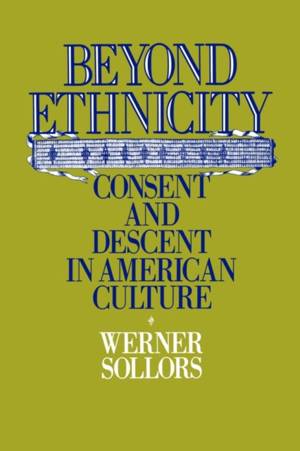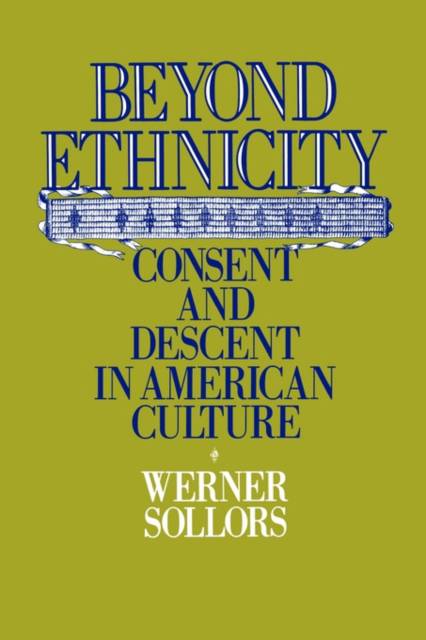
- Retrait gratuit dans votre magasin Club
- 7.000.000 titres dans notre catalogue
- Payer en toute sécurité
- Toujours un magasin près de chez vous
- Retrait gratuit dans votre magasin Club
- 7.000.0000 titres dans notre catalogue
- Payer en toute sécurité
- Toujours un magasin près de chez vous
85,95 €
+ 171 points
Description
Nothing is "pure" in America, and, indeed, the rich ethnic mix that constitutes our society accounts for much of its amazing vitality. Werner Sollors's new book takes a wide-ranging look at the role of "ethnicity" in American literature and what that literature has said--and continues to say--about our diverse culture. Ethnic consciousness, he contends, is a constituent feature of modernism, not modernism's antithesis. Discussing works from every period of American history, Sollors focuses particularly on the tension between "descent" and "consent"--between the concern for one's racial, ethnic, and familial heritage and the conflicting desire to choose one's own destiny, even if that choice goes against one's heritage. Some of the stories Sollors examines are retellings of the biblical Exodus--stories in which Americans of the most diverse origins have painted their own histories as an escape from bondage or a search for a new Canaan. Other stories are "American-made" tales of melting-pot romance, which may either triumph in intermarriage, accompanied by new world symphonies, or end with the lovers' death. Still other stories concern voyages of self-discovery in which the hero attempts to steer a perilous course between stubborn traditionalism and total assimilation. And then there are the generational sagas, in which, as if by magic, the third generation emerges as the fulfillment of their forebears' dream. Citing examples that range from the writings of Cotton Mather to Liquid Sky (a "post-punk" science fiction film directed by a Russian emigre), Sollors shows how the creators of American culture have generally been attracted to what is most new and modern. A provocative and original look at "ethnicity" in American literature BLCovers stories from all periods of our nation's history
BLRelates ethnic literature to the principle of literary modernism
BL"Grave and hilarious, tender and merciless...The book performs a public service."-Quentin Anderson
BLRelates ethnic literature to the principle of literary modernism
BL"Grave and hilarious, tender and merciless...The book performs a public service."-Quentin Anderson
Spécifications
Parties prenantes
- Auteur(s) :
- Editeur:
Contenu
- Nombre de pages :
- 320
- Langue:
- Anglais
Caractéristiques
- EAN:
- 9780195051933
- Date de parution :
- 29-10-87
- Format:
- Livre broché
- Format numérique:
- Trade paperback (VS)
- Dimensions :
- 156 mm x 235 mm
- Poids :
- 467 g

Les avis
Nous publions uniquement les avis qui respectent les conditions requises. Consultez nos conditions pour les avis.






